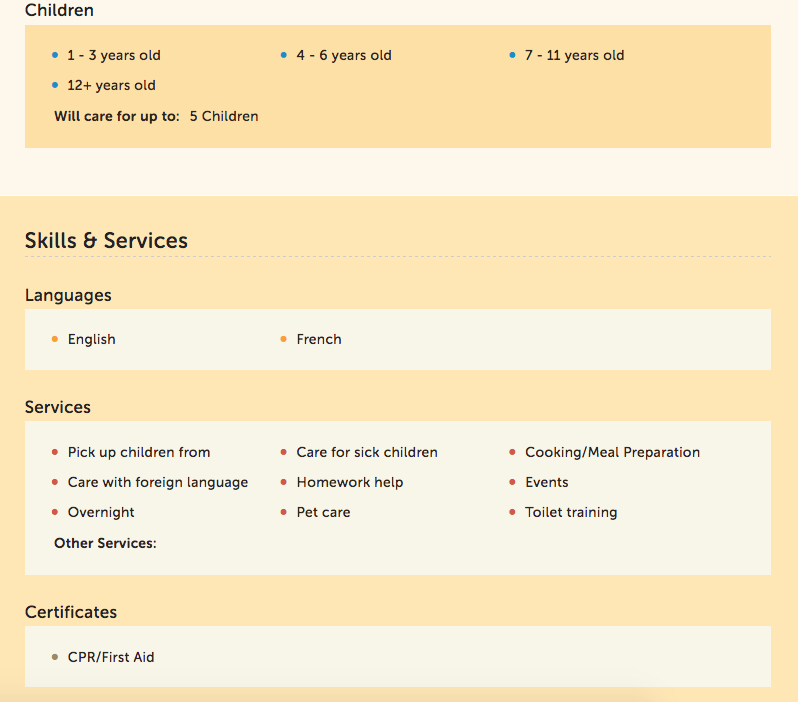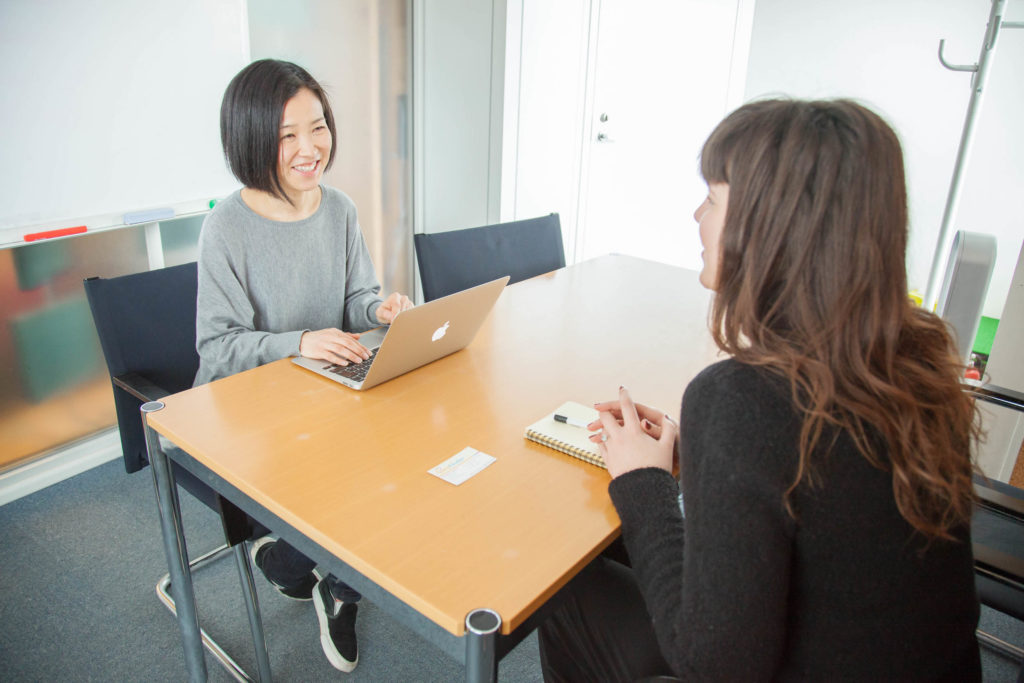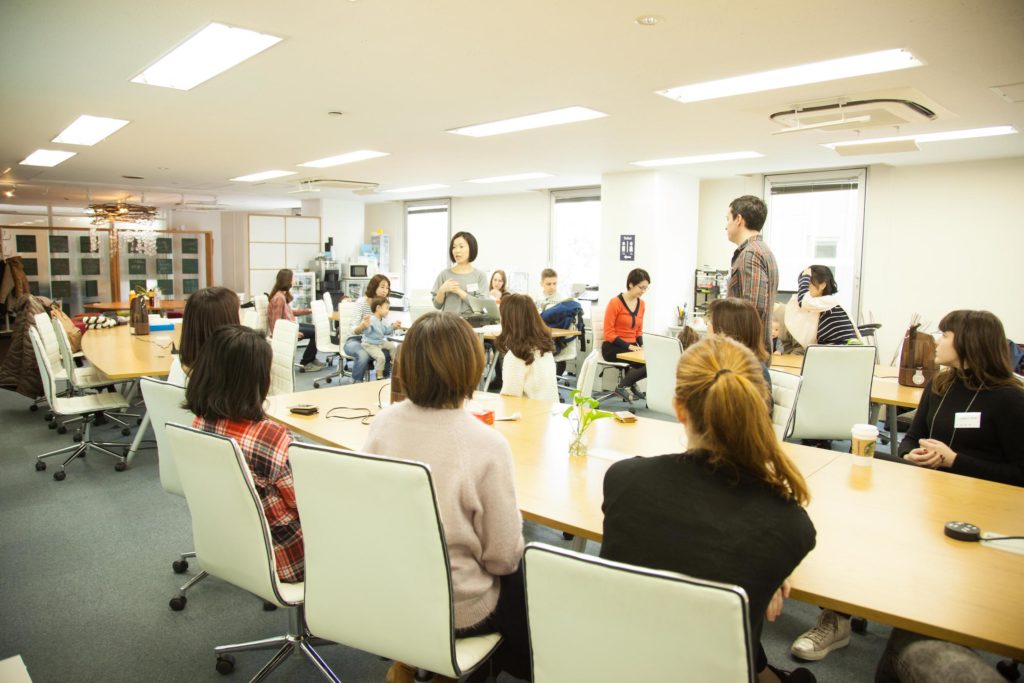10 Reasons Why CareFinder’s Babysitting Services Make A Difference
From Cost Efficiency To Raising Public Awareness
“We’re not an agency — we’re an international community that sustains and preserves close bonds between parents and babysitters in Japan.”
While Japan continues to suffer from a major daycare facility shortage and public childcare institutions remain relatively inaccessible to the international community due to language barriers and rigid regulations, the country is surprisingly slow to recognize babysitting as an alternative solution. One-to-one babysitting services in Japan are still scarce, largely due to concerns regarding lack of exposure to other kids and carers not having adequate qualifications. The demand, however, is growing — and things are gradually starting to change.
One company that has a lot to do with changing the status quo in Japan is CareFinder, a bilingual babysitting matching service based in Tokyo and operating throughout Japan. Founded in 2013 by Megumi Moss with the help of her husband Trevor, the company has grown from zero to having over 1,000 regular users and over 300 registered babysitters in less than four years. “People are starting to realize that there are other [daycare] options and it’s OK to use them,” the two tell Savvy Tokyo in a recent visit to their office in Akasaka. As we chat with them, it becomes clear what differentiates the company from the competition and why we would highly recommend it to anyone in need of some occasional help with the kids.
Here are our top 10 reasons why you should go for CareFinder when you need a sitter.
1. It has a very user-friendly interface
It only takes fours steps to get the ball rolling: registration, payment, job post and hiring, and everything can be done online in English and Japanese. When in need for a babysitter, parents just post a job post describing their needs and the sitter they would prefer, then wait until a sitter responds to the job offer. Once the match is established, all further negotiations, including a face-to-face interview, can be conducted directly between the sitter and the parents. It’s stress-free, the stern middleman is absent from the scene, and the process is fast and efficient.

CareFinder’s registration system is extremely easy to navigate through.
2. It matches you with the perfect sitter for your needs
In their job post, users are invited to describe specifically the sitter they need. Fluent in French? Can cook carrot cake just like your kid likes it? Can sing and play the piano? Has experience raising newborns? Based on the child’s personality, age or specific needs, feel free to specify even minor details of the perfect nanny — she is on the CareFinder’s list.

Choose who will care for your child: Sitters’ profiles include personal information, hourly rates, a profile photo, self-introduction, skills and services, certificates, languages and availability, and more.
3. It makes sure your child is in the right hands
To the point of being labeled as over-cautions, CareFinder invests a great time in making sure that its sitters are fit for the job, have a secure background and are reliable to be left with your children alone. The screening process is long and requests applicants to provide a detailed list of documents in the first stage of application, including visa and proof of work permit in Japan, proof of registration with the local government, CPR certificates and more.
CareFinder operates under the core principle that people can use the service only if they trust the person taking care of their children.
“Over half drop out at this stage,” Trevor says, “but that is totally OK with us. We need to make sure we’re dealing with determined, motivated and secure people.” Applicants who pass the first screening are invited for a face-to-face interview, during which they also undergo a stress test to make sure they can manage in a variety of panic situations, and we all know that kids can cause those more often than not! It is only a handful of those applicants — and therefore the best — who get listed on the site. The company also strongly encourages every parent to conduct face-to-face interviews with applicants, because hiring a babysitter is a very personal decision — and whoever takes the job should always be the right one.

Megumi in the process of interviewing an application for a babysitting position. The selection process is strict, detailed and complicated, aiming at choosing the best qualified and determined people for the job.
4. It’s highly affordable
While the majority of the major Japanese babysitting services require a one-time registration fee (around ¥20,000 to ¥30,000 on the average) in addition to yearly fees and hourly payment direct to the sitters, CareFinder has a fixed monthly fee of ¥2,980, while hourly payment to the sitters starts at ¥1,200 an hour. Payment is done directly to the sitters and CareFinder will not charge you anything on top of the monthly registration fee. Furthermore, CareFinder currently offers a special promotion for those who register by May 31, offering a monthly fee for the rest of the year at only ¥1,490.
5. It’s a community building platform, not an agency
While most babysitting agencies in Japan make sure that everything is “perfectly” done by over controlling the situation and limiting networking between users and sitters, CareFinder operates under the core principle that people can use the service only if they trust the person taking care of their children. That is why the company invests a lot of time in facilitating and supporting mutual interaction. Through encouraged direct communication, users become familiar with sitters (and vice versa) and are free to employ them regularly based on their needs. The sitters bond with the children and the parents simultaneously, establishing mutual trust, friendship and reliance.

Parents, sitters and staff’s get-together meetings take place four times a year at CareFinder’s office in Akasaka, Minato-ku and other locations.
6. It facilitates regular public meetups
As a company that bases its core principles to the belief that babysitting is based on interaction and mutual trust, CareFinder organizes face-to-face casual get-togethers with babysitters, parents and people who want to know more about the service in Tokyo four times a year — call it a babysitting networking event. Through those events, parents are able to meet with CareFinder’s babysitters, establish contact and forge closer relationships. It also helps babysitters, too, to get to know the parents (because to make it work, everyone needs to be comfortable) and it also provides an opportunity for those who are unfamiliar with the service to get to know more and ask many questions before registering.
7. Their sitters come from all over the world
As a true bilingual and international service operator, CareFinder makes sure that its sitters match the needs of their customers at all times. Around 40 percent of the sitters are foreigners coming from every part of the world. Among them are expats with childcare experience, international university students and other professionals, including bilingual Japanese former or current daycare teachers. Over half of the sitters are bilingual and many speak two to more foreign languages.
Around 40 percent of the sitters are foreigners coming from every part of the world.
8. Its service is always up to date
CareFinder’s staff members make sure that every information on the site is constantly updated by closely monitoring sitters’ login status and contacting those who haven’t logged in after a certain time. “We don’t want to have a last-minute job post on the site and no one to be able to respond to it,” Trevor says. Sitters who for any reason fail to be active on the site for certain time are put on hold, thus assuring parents that their needs will be met accordingly.
9. It’s run by people who know users’ needs — from experience
Trevor and Megumi started CareFinder because they knew how much need there is for parents, yet how few bilingual options there are in Japan. “Parents need to go on dates from time to time,” the two say, knowing from experience. “We would have been divorced long ago if we wouldn’t allow ourselves to let some steam off occasionally,” they laugh. Raising a three-year-old daughter themselves, the two often use CareFinder to search for babysitters when in need for extra work time or just a casual date away from the business. “We can do that because we have strong bonds with our sitters and we can negotiate if we need an extra hour away.” There is great room for flexibility when both parties trust each other and work well together.

Know from experience: In addition to running the business, Megumi and Trevor are also parents, raising a three-year-old daughter.
10. The company is already serving as a catalyst for change
The more people get involved in the babysitting business, the more options and support parents will have when raising children in Japan. “Babysitting is still viewed with an element of doubt in Japan, but our business has grown significantly since we launched it,” Megumi and Trevor say.
Subscription from Japanese parents has also been increasing, as they are starting to realize that interactions with babysitters is a great plus for the child. “We noticed this with our daughter — since a very early age she has been exposed to many babysitters, and now when she started kindergarten she is very independent. Whereas other children cry when their parents leave, our daughter is completely calm. We think this is largely because she is used to being among different people.” As more people spread the-word-of-mouth, the more they will take advantage of the already existing babysitting services, and perhaps this could be one way to solve Japan’s everlasting problem with daycare and child support. CareFinder’s registered users and babysitters are growing at full speed, and we here at Savvy Tokyo, are already planning our registration — for the future.
For more information on CareFinder, see their official website: www.carefinder.jp/en











